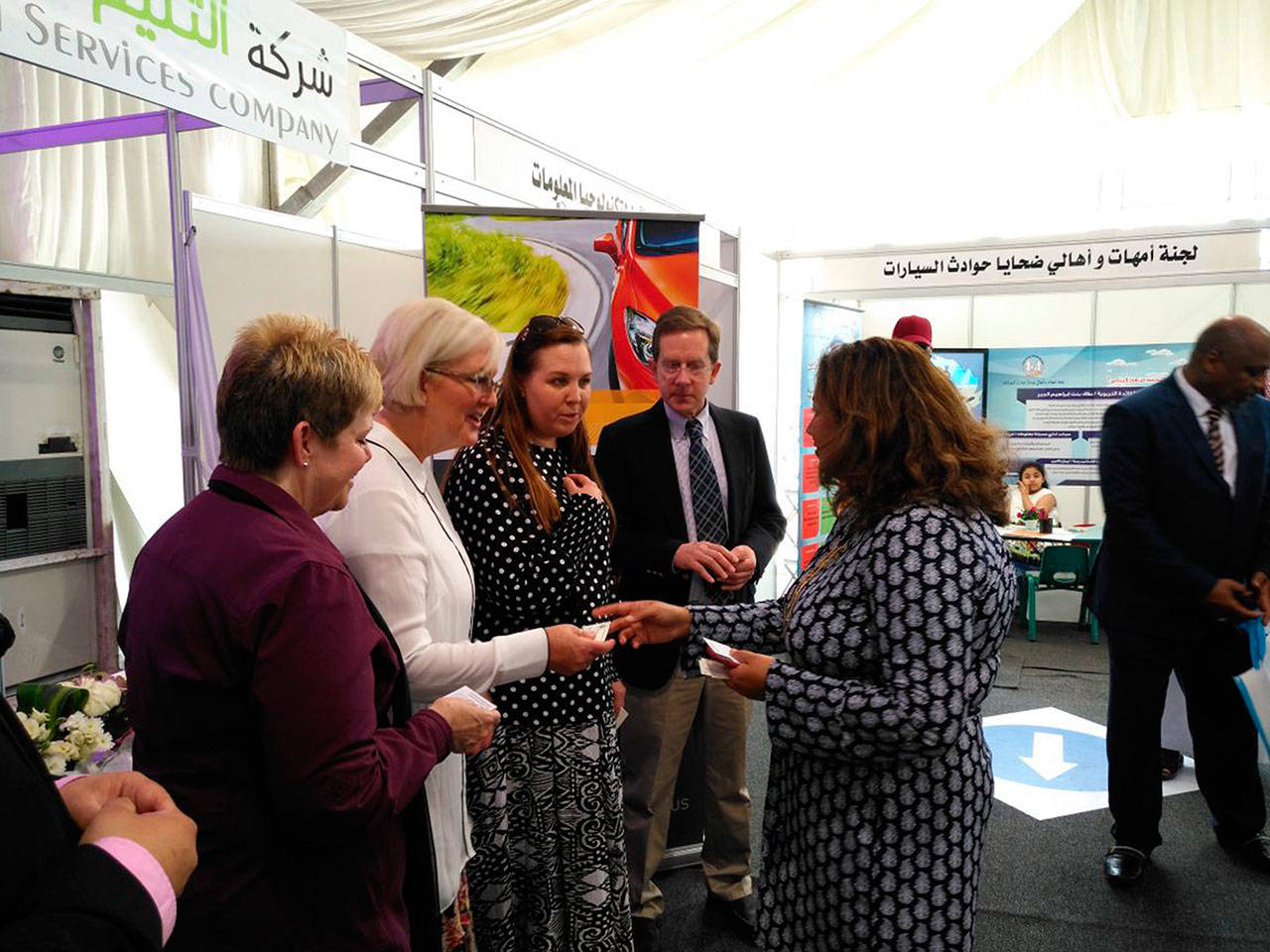It’s not far off the mark to say Sheryl Vanderwalker helped usher in a major culture shift to be remembered in the history books.
In September 2017, Saudi Arabia’s Crown Prince Mohammed bin Salman decreed women would be allowed to obtain a driver’s license and drive, a right that was realized June 24, 2018, after decades of forcing Saudi Arabian women off the road.
Late last April, Vanderwalker — an Enumclaw local — traveled to Imam Abdulrahman Bin Faisal University in Dammam, Saudi Arabia, to participate in a forum educating women on how they can exercise their newfound independence.
“It was amazing,” she said, adding that being a part of this moment “sounded like the opportunity of a lifetime.”
Vanderwalker was part of a group representing Global Driving Solutions, of which she is the vice president of operations. You may not recognize the name, but GDS is the parent company of SWERVE Driving School and 911 Driving School.
She is also the head of the Enumclaw Rules of the Road driving school on Griffin Avenue, has 10 years of experience designing and developing driver training curriculum, and a further nine years of experience teaching Traffic Safety Educators in Washington and Oregon.
The goal of the forum, for which “thousands” of women attended, Vanderwalker said, was not to teach women how to drive, but to “figure out what they needed from us, how we could help them move forward, put a program together that would work within the Kingdom of Saudi Arabia.”
Even though no teaching occurred, some booths at the forum had driving simulations; Vanderwalker’s had a prop where women could feel what it was like to steer.
She also gave out key rings for women to use when they got their own car, something that went over very well with the women who came by her booth.
But Vanderwalker said her booth was probably the most popular simply because they were the only Americans attending the forum.
“We had lines and lines and lines of women, just wanted to come up and say hi, and they’d come back the next day and say hi again,” she said. “I was asked if I was famous. And I said, no, and they said, ‘Are you a doctor?’ No, I live in Enumclaw. You’ve never heard of us.”
Vanderwalker told The Courier-Herald and The Seattle Times that the five all-female universities currently offering driving classes have a backlog of 75,000 or more women each on a waiting list, and it’s that backlog that Global Driving Solutions wants to address.
After the five-day forum, Global Driving Solutions partnered with a consulting firm to be marketed in Saudi Arabia as a resource for driving schools to use for developing more efficient driving education programs, and are even looking for instructors.
Vanderwalker will be returning to Saudi Arabia to be a part of developing those programs in September. Though a specific date for her departure hasn’t been set, she plans to be gone for at least two or three weeks.
She is also aiming to get her own license so she can drive, joining the 2 million women estimated to be driving on their country’s streets by 2020.
History of driving in Saudi Arabia
Saudi Arabia was the last country in the world to ban women from driving until this year.
Instead, if Saudi Arabian women didn’t want to walk, they were required to be driven by male relatives, or even chauffeurs.
According to a CNN Money report, roughly 1.4 million men worked as drivers for private households — one for every 23 Saudis — and there is fear that women being able to drive independently will close the market.
Vanderwalker said many women were ecstatic over their new state of autonomy, but others were thinking more practically.
“They just look at this as, there’s going to be more money in the household,” she said. They were having their chauffeurs, they were housing them… they don’t have to do that anymore.”
CNN Money reported Saudi officials estimated households could potentially save the equivalent of $1,000 a month by not using chauffeurs.
Even still, some women told Vanderwalker they don’t want to drive out of tradition or respect for their family, or simply because the Saudi roads can be scary to navigate for those just learning to be behind the wheel.


